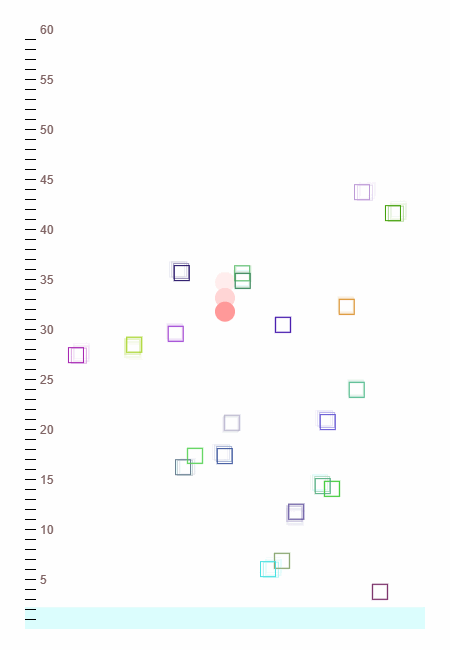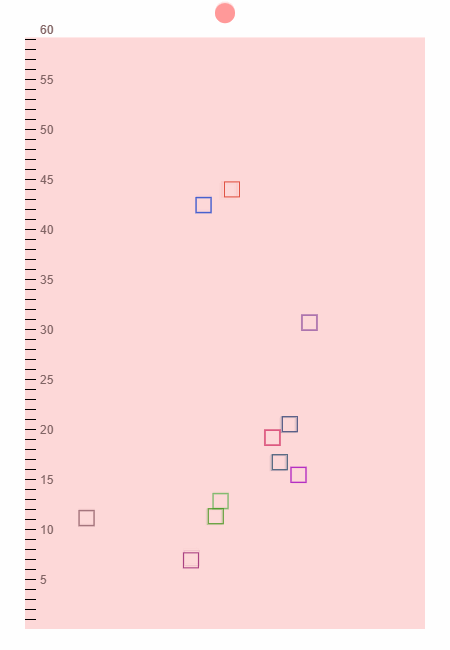My actual clock:
When I was working on sketching ideas for this assignment last Friday during class, I struggled quite a bit. I think I had too many ideas that were too different. I thought of incorporating trees and seasons, planets and its rotations, but I found myself constantly at a block that I couldn't get past. Throughout the week I pondered about time and I think I put too much pressure on time being a grandiose thing that needed a counterpart grandiose object to represent it. I took myself away from that thought and reflected upon my time spent living in a new building for the fall semester. My kitchen sink had had a leak in it and my parents and I had to put a container under it for the first few days to prevent it from spilling out everywhere. After it was filled, we'd empty it and the cycle began again. I decided to incorporate that as my clock to represent time in my own trivial, personal way.
Clock at 1:39 AM to 1:40 AM:

Clock at 10:02 PM:

Clock at 11:59 AM to 12 PM (you can see a small light green square forming on the lower middle with each new hour):

function setup(){ // Simple p5.js Clock Template // Golan Levin, 2016 var prevSec; var prevMin; var prevHour; var millisRolloverTime; var secRolloverTime; var hourRolloverTime; var cubeList; var x = []; var squareSize; //-------------------------- function setup() { createCanvas(400, 650); millisRolloverTime = 0; secRolloverTime = 0; hourRolloverTime = 0; cubeList = []; squareSize = 15; for (var k = 0; k < 24; k++){ randomX = int(random(35, width - squareSize - 20)); randomY = int(random(200, height - squareSize - 20)); append(x, randomX); append(x, randomY); append(x, int(random(0,230))); append(x, int(random(0,230))); append(x, int(random(0,230))); append(x, int(random(1, 9))); append(cubeList, x); x = []; } print(cubeList); } //-------------------------- //-------------------------- function draw() { background(255,255,255,150); // My favorite pink // Fetch the current time var H = hour(); var M = minute(); var S = second(); // Reckon the current millisecond, // particularly if the second has rolled over. // Note that this is more correct than using millis()%1000; if (prevSec != S) { millisRolloverTime = millis(); } prevSec = S; if (prevMin != M) { secRolloverTime = millis(); } prevMin = M; if (prevHour != H) { hourRolloverTime = millis(); } prevHour = H; var smoothMin = floor(millis() - secRolloverTime); var mils = floor(millis() - millisRolloverTime); var smoothHour = floor(millis() - hourRolloverTime); //var leftMinDiv = map(height, 0, 800, //fill(128,100,100); //text("Hour: " + H, 10, 22); //text("Minute: " + M, 10, 42); //text("Second: " + S, 10, 62); //text("Millis: " + mils, 10, 82); //text("SmoothHour: " + smoothHour, 10, 102); var hourBarWidth = map(H, 0, 23, 0, width); var minuteBarWidth = map(M, 0, 59, 0, width); var secondBarWidth = map(S, 0, 59, 0, width); // Make a bar which *smoothly* interpolates across 1 minute. // We calculate a version that goes from 0...60, // but with a fractional remainder: var secondsWithFraction = S + (mils / 1000.0); var secondsWithNoFraction = S; var secondBarWidthChunky = map(secondsWithNoFraction, 0, 60, 0, width); var secondBarWidthSmooth = map(secondsWithFraction, 0, 60, 0, width); var smoothMinFraction = M + secondsWithFraction; var smoothMinBar = map(smoothMinFraction, 0, (M*60) + 60, 0, width); ////////// //noStroke(); //fill(40); //rect(0, 100, hourBarWidth, 50); //fill(80); //rect(0, 150, minuteBarWidth, 50); //fill(120); //rect(0, 200, secondBarWidthChunky, 50); //fill(160); //rect(0, 250, secondBarWidthSmooth, 50); //fill(200); //rect(0, 50, smoothMinBar, 50); noStroke(); var circleSize = 20; if (mils >= 300){ var mapping2 = map(mils, 300, 999, 15, (height - (M * 10) - 10)); fill(255, 153, 153); ellipse(width/2, mapping2, circleSize, circleSize); } var hourMap = map(smoothHour, 0, 3600000, height, 190); var minMap = map(smoothMin, 0, 60000, 10, 0); var minAdj = map(M, 0, 59, height - 15, 180); beginShape(); for (var i = 0; i <= width+1; i++) { var mapWidth = map(i, i, width, PI, 2*PI); var x = float(i); var mapping = map(mils, 0, 500, -PI, 0); var bounce = map(mils, 0,999, 9, 0); var y = 10 * sin(bounce * mapWidth * 0.1 * mapping) + (height - (M * 10) - 10); if (x >= 0 && x <= width+1){ vertex(x, y); } } mapTankColR = map(M, 0, 60, 204, 255); mapTankColG = map(M, 0, 60, 255, 200); mapTankColB = map(M, 0, 60, 255, 200); fill(mapTankColR, mapTankColG, mapTankColB, 150); vertex(width, height); vertex(0, height); endShape(); var minCount = 5; //255,200,200 for (var j = height - 45; j > 50; j -= 50) { push(); fill(128, 100, 100); text(minCount, 15, j); minCount += 5; pop(); } for (var j = height - 10; j > 50; j -= 10) { push(); stroke(0,0,0); strokeWeight(1); line(0, j, 10, j); pop(); } if (M == 59 && S == 59) { if (H == 23) { cubeAppear(0, mils); } else{ cubeAppear(H+1, mils); } } for (var hor = 0; hor < H; hor++){ push(); var mapRotate = map(mils, 0, 999, 0, 2*PI); noFill(); stroke(cubeList[hor][2],cubeList[hor][3],cubeList[hor][4]); rect(cubeList[hor][0] + (squareSize*cos(mapRotate * cubeList[hor][5]))/4, cubeList[hor][1] + (squareSize*sin(mapRotate * cubeList[hor][5]))/4,squareSize,squareSize); pop(); } //0 0 153 } function cubeAppear(hour, mils){ if (hour == 0){ setup(); return; } else{ noFill(); strokeWeight(1); mapOpp = map(mils, 0, 800, 0, 255); stroke(cubeList[hour - 1][2],cubeList[hour - 1][3],cubeList[hour - 1][4], mapOpp); rect(cubeList[hour - 1][0],cubeList[hour - 1][1],squareSize,squareSize); //for (var cube = 0; cube < cubeList.length; cube++){ // push(); // noFill(); // stroke(cubeList[cube][2],cubeList[cube][3],cubeList[cube][4]); // rect(cubeList[cube][0],cubeList[cube][1],squareSize,squareSize); // pop(); //} } } |